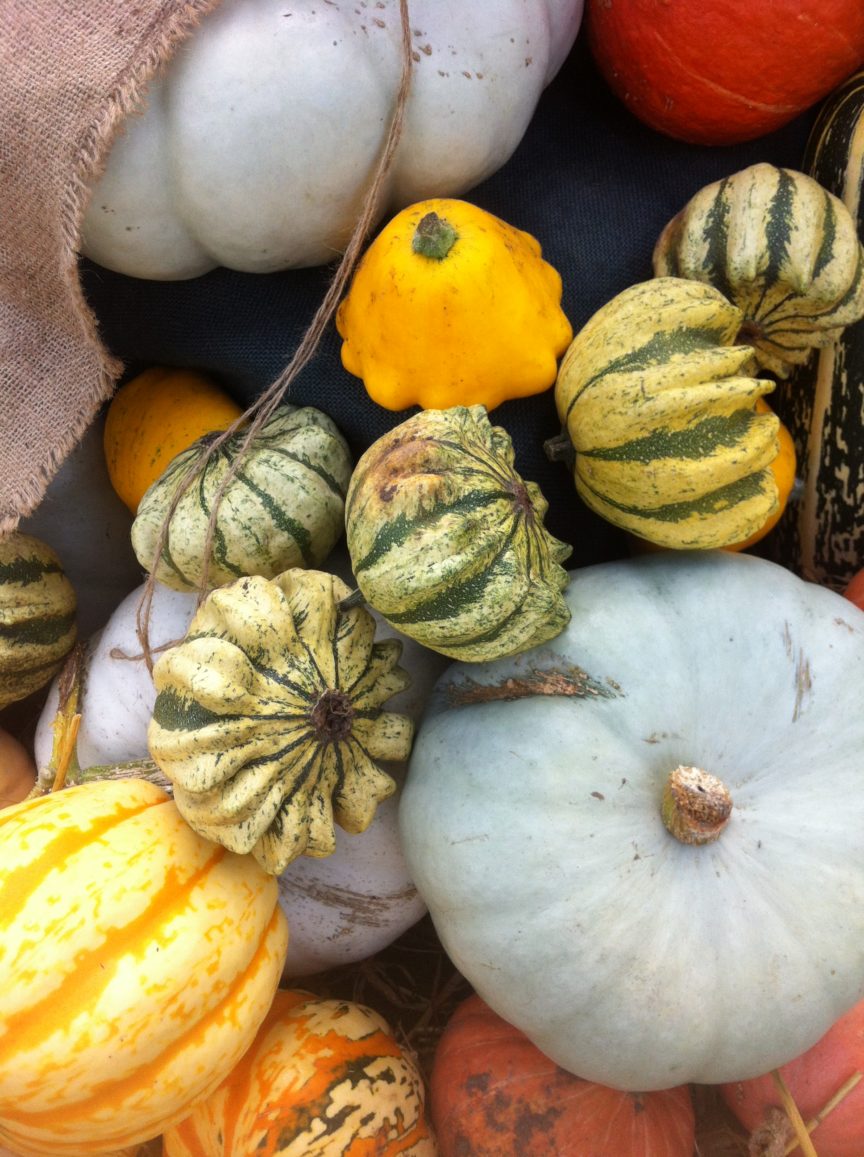So seasonal that they single-handedly represent Halloween, yet often underused in the UK, the squash family includes pumpkins as well as courgettes. Broadly separated into winter and summer squash, winter squash would be pumpkins, while summer squash would include things like courgette and pattypan (or scallop) squash.
The plant itself is a fast-growing vine similar to those of cucumbers and melons that creeps on the surface and produces fruits. Pumpkin is one of the most popular field crops cultivated around the world. They vary greatly in shape, size and colour. Pumpkins generally feature orange or yellow colours, however they can come in shades of green, brown, white, red and gray.
The normally bright orange colour of pumpkin shows that it is loaded with the antioxidant beta-carotene, which is converted to vitamin A in the body. One hundred grams of pumpkin will give your body nearly twice the necessary daily amount of Vitamin A (170% of RDA). In the process it performs many important functions in overall health.
Current research points to a diet rich in foods containing beta-carotene reducing the risk of developing certain types of cancer as well as protecting against heart disease. It’s also low-calorie, can lower cholesterol and can aid weight reduction too, though it does have a carb-count (100g of pumpkin is around 6g of carbohydrate) and needs to be counted as part of a diabetic diet.
Pumpkin nutrition facts
(1 cup cooked, boiled, drained, without salt)
Calories: 49
Protein: 2 g
Carbohydrate: 12 g
Calcium: 37 mg
Iron: 1.4 mg
Magnesium: 22 mg
Potassium: 564 mg
Zinc: 1 mg
Vitamin C: 12 mg
Folate: 21 mcg
Vitamin A: 2650 IU
Vitamin E: 3 mg
Seeds of hope
Pumpkins, and their seeds, are native to the Americas, and indigenous species are found across North America, South America, and Central America. They are an excellent source of dietary fiber and mono-unsaturated fatty acids, which are good for heart health.
The seeds are also a concentrated source of protein, minerals and vitamins. For instance, 100 g of pumpkin seeds provide 559 calories, 30 g of protein, 110% RDA of iron, 4987 mg of niacin (31% RDA), selenium (17% of RDA), zinc (71%) etc., but no cholesterol.
There is some research evidence from animal studies about pumpkin seeds preventing or helping the treatment of diabetes. Studies on laboratory animals have shown the ability of ground pumpkin seeds, pumpkin seed extracts, and pumpkin seed oil to improve insulin regulation in diabetic animals and to prevent some unwanted consequences of diabetes on kidney function. Decrease in oxidative stress has played a key role in many studies that show benefits of pumpkin seeds for diabetic animals.

